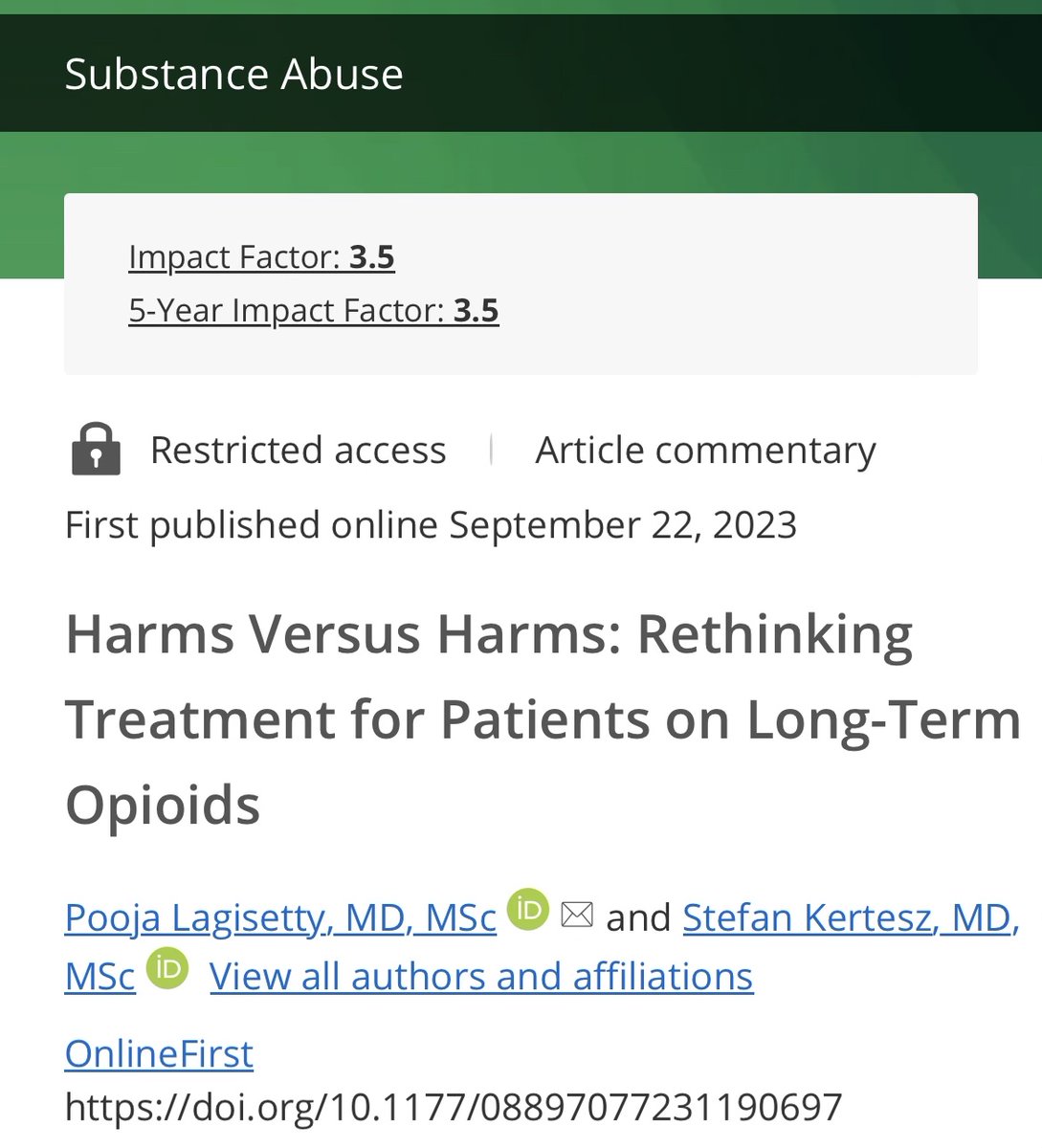1/How to fix a problem in addiction treatment: a Train the Trainer model to expand #opioid use disorder treatment, tackling barriers: knowledge (providers & administrators), workload, innovation fatigue, telehealth, credentialing. In @SubstanceAbuseJ pubmed.ncbi.nlm.nih.gov/32697170/
2/The key was to address this reality: there is considerable failure to reach patients with OUD with medication based therapies in @VeteransHealth (same as outside) with only a small % (often just 1/4 or less) obtaining treatment
3/The SCOUTT Initiative drew 13 staff from each VA network, with 4 leaders in mental health, substance use, primary care, pain services, and 7 multidisciplinary staff (pharmacists, nurses, physicians, therapists) - for special training- conference & community of practice
4/They implemented two LEVEL 1 clinics (addiction treatment via primary care, mental or pain settings) within 12 months and another within 24 months. Heavy emphasis on nurse collaboration
5/As this began, SCOUTT leaders anticipated PRECISELY those challenges our health care system fails to consider when implementing change: competing time demands, stigma of OUD, overworked front line staff, and lack of incentive for real change. That required more resources
6/Crucial for reporters: Reporting on "lack of treatment" or "prescribing opioids" is too narrow. The question to ask, for rehabilitation, pain, or addiction is this:
"what tangible steps should health systems and their payers take to implement change successfully".
"what tangible steps should health systems and their payers take to implement change successfully".
7/Hats off to this guy (left side) who led the SCOUTT Initiative to expand OUD treatment in VA, @vahsrd investigator, clinician and nurturer-in-chief @AJ_Gordon #mensch
#Tristan
#Tristan

• • •
Missing some Tweet in this thread? You can try to
force a refresh

















